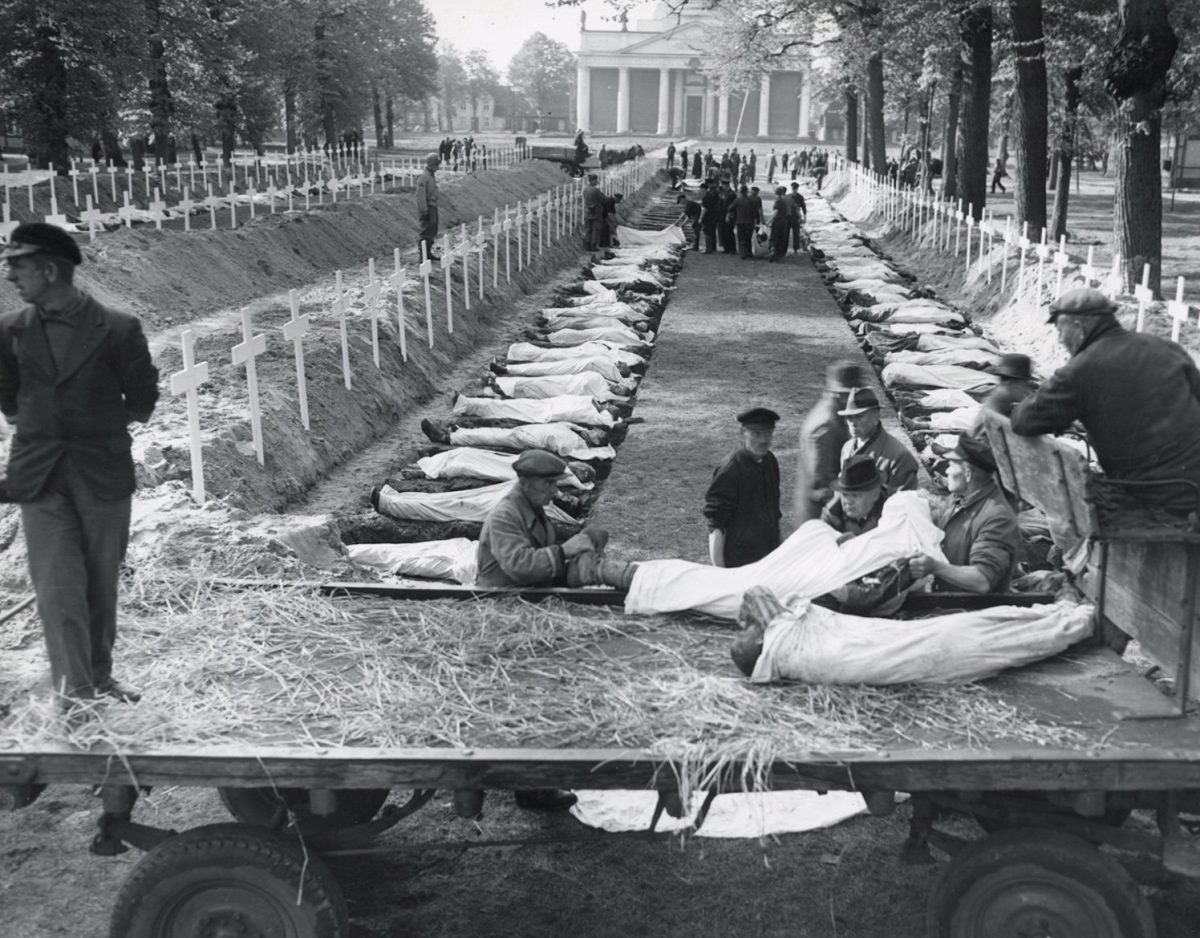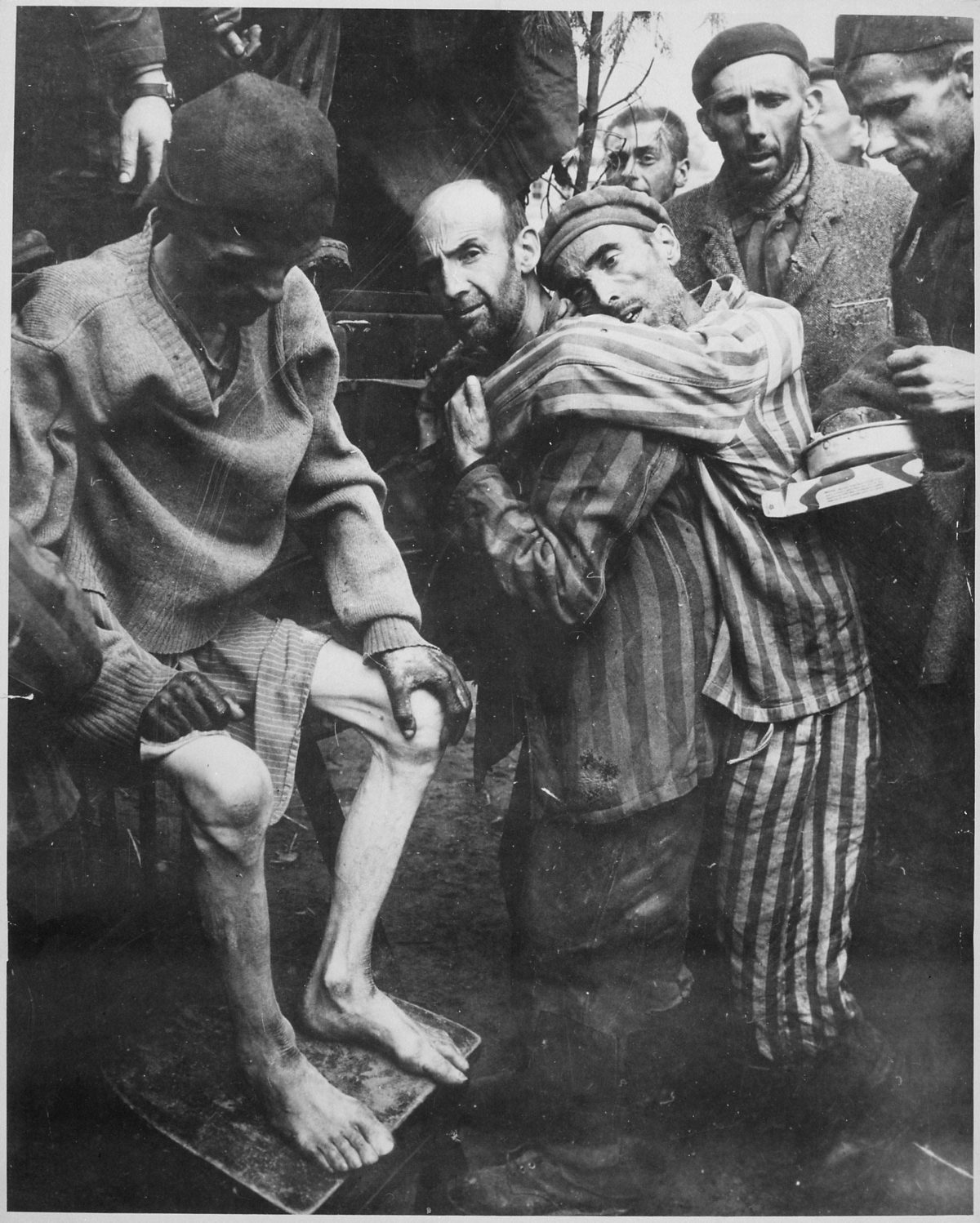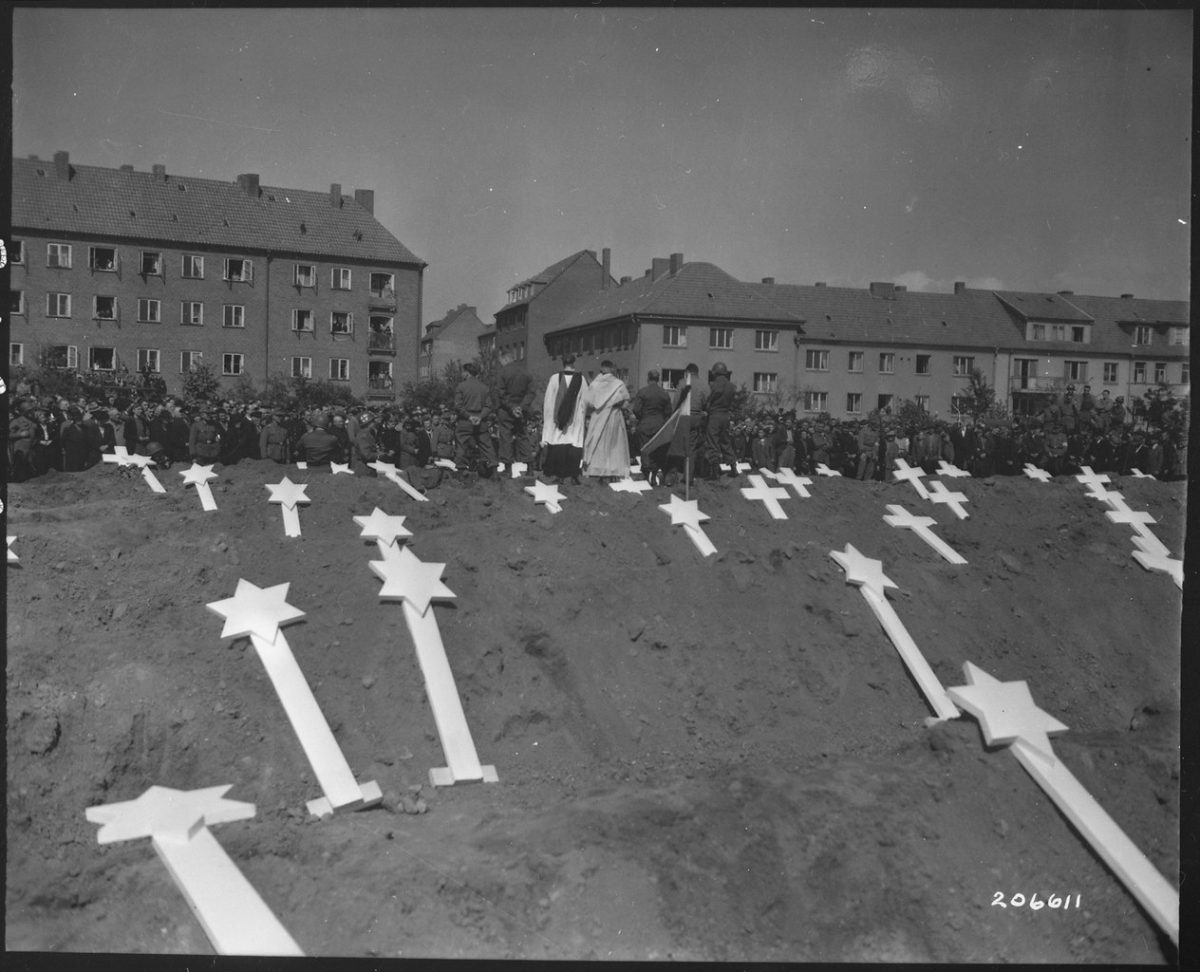“Before my grandad died he insisted I was the only one allowed to sort through his paperwork,” writer Sarah, who posts as film_flook. “After he died, all sorts of things were discovered (nothing too wild) which took a while to go through and then it finally came to the trunk.”
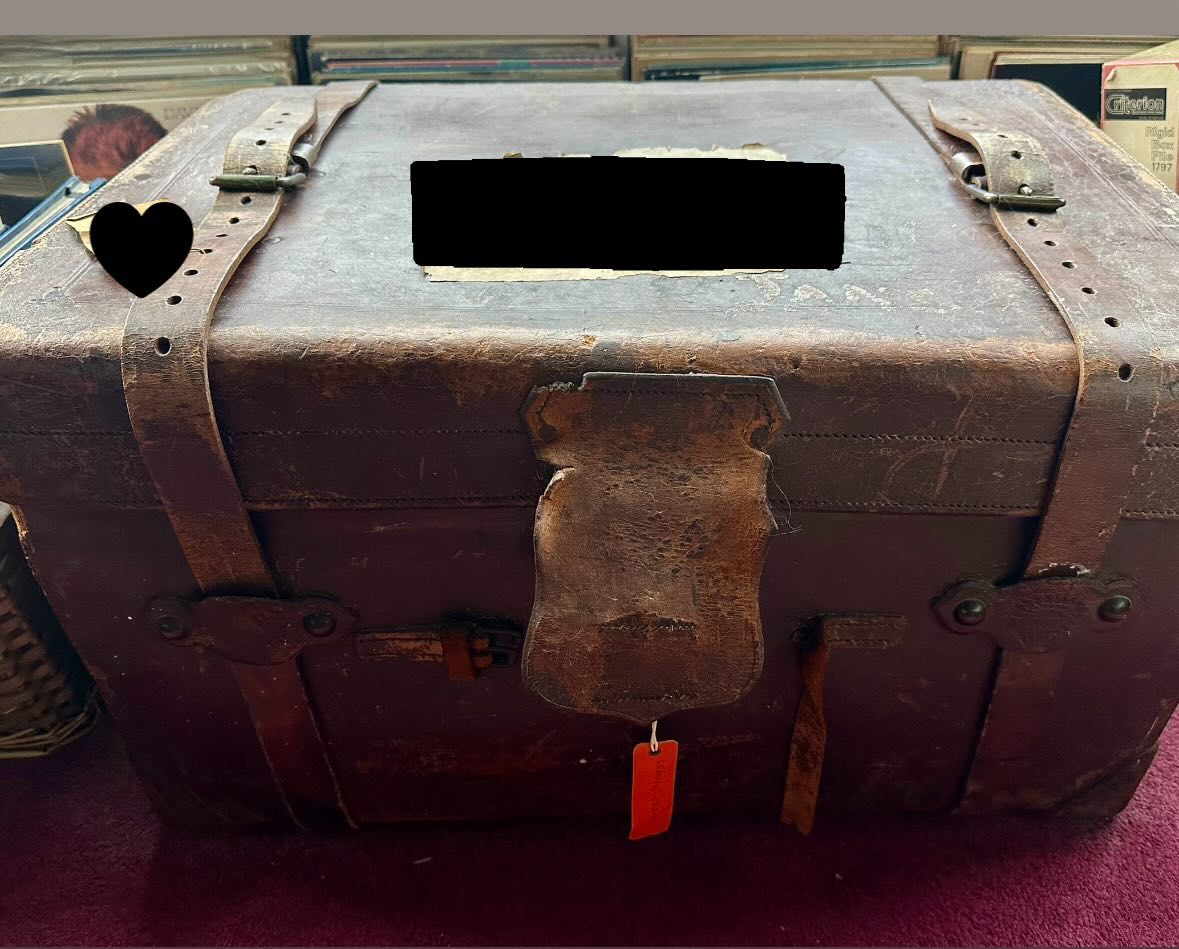
“This trunk came with my grandfather from Brazil when he was headed to the UK to join the RAF in 1940 and become a Spitfire pilot. I was obsessed with this trunk as a child and thought it contained treasure but wasn’t allowed to open it.
“I spent months reading the letters sent from family all over the world, during and after the war. Until it was empty. I was about to put everything back in when I realised the outside of the trunk was deeper than the inside. There was a false bottom!
“Lifting up the panel was incredible…”
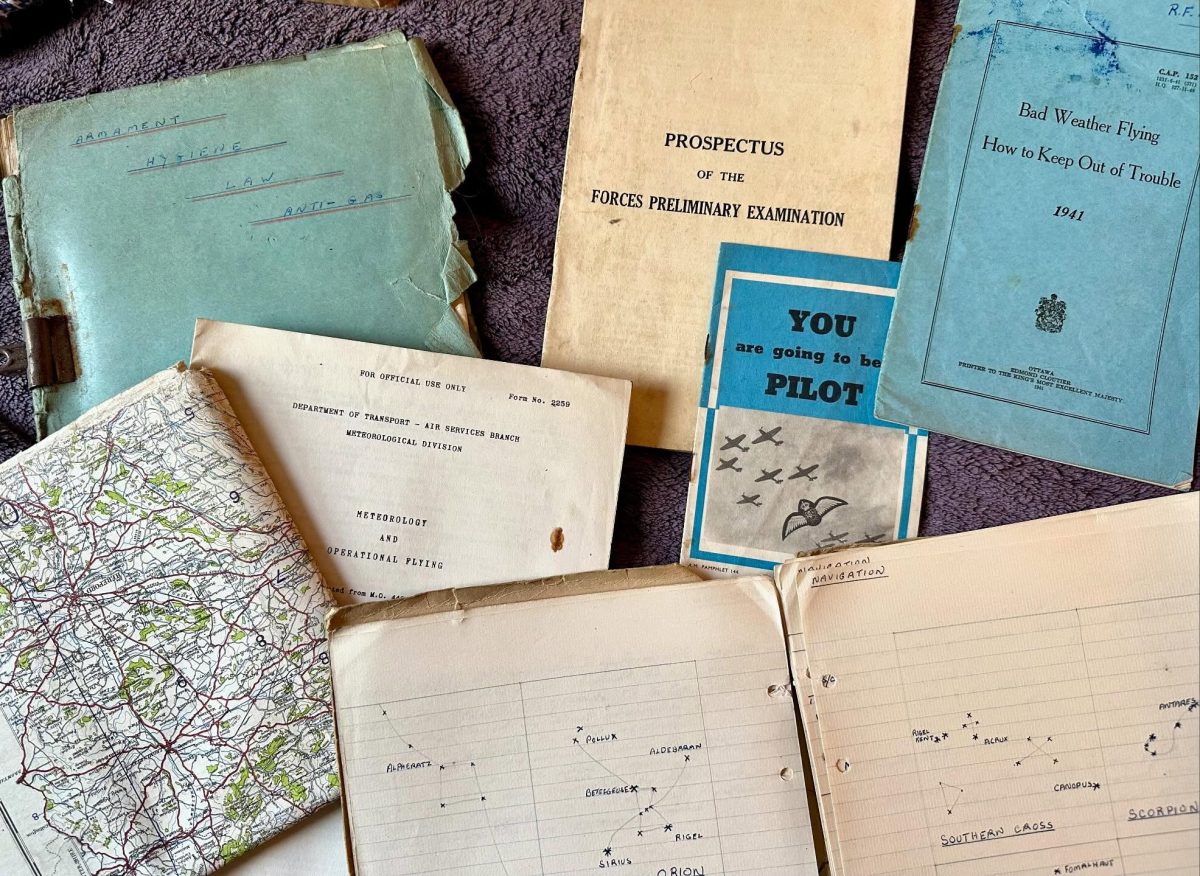
“I found all his exercise books from his RAF training, leaflets about his impending career and maps from his training flights (mainly in Canada). We also found his ‘escape and evade’ silk map which was sown into the lining of his flight jacket.
“I’m not sure how sensitive this stuff is anymore (it’s over 80 years old so unlikely) but it was a Treasure Trunk after all.”
Among The Trunk’s Contents:
Bad Weather Flying And How To Keep out of Trouble, 1941
Prospectus – Forces Preliminary Examination
Meteorology and Opertional Flying
You Are Going To Be A Pilot
An exercise book titled ‘Armament Hygiene Law’
Grandpa’s Account of War and Being A Prisoner in Germany
Sarah’s grandfather enlisted. She spoke with him about his time in World War 2, and of his experience as a prisoner in the Wöbbelin concentration camp, a subcamp of the Neuengamme concentration camp near the city of Ludwigslust, Germany.
The SS had established Wöbbelin to house concentration camp prisoners whom the SS had evacuated from other camps to prevent their liberation by the Allies. At its height, Wöbbelin held some 5,000 inmates, most of whom were suffering from starvation and disease. The camp was freed on May 2, 1945.
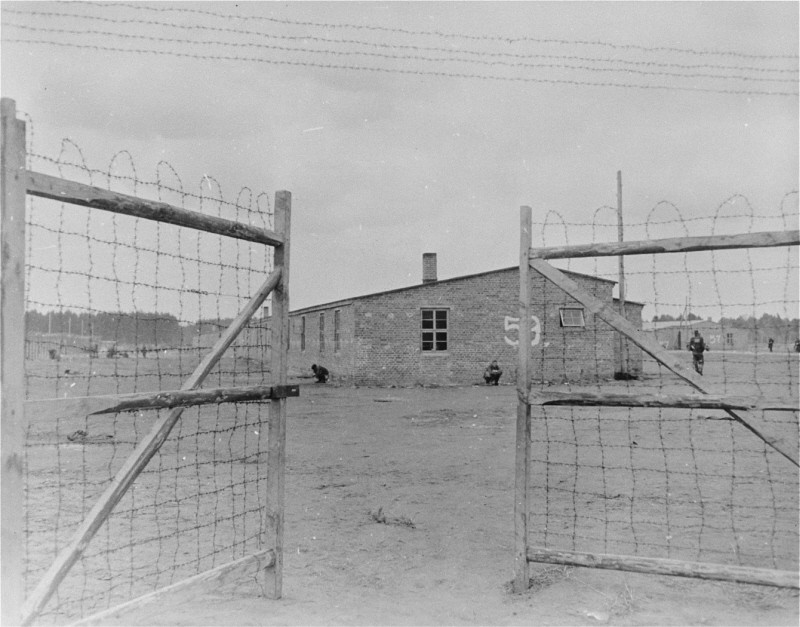
“Today (and a lot of days) I’m thinking about my grandfather telling me how he spent a few nights at Wöbbelin concentration camp in April 1945,” Sarah continues. “A few weeks before it was freed. Here’s what he told me and much of this is also from an account he wrote very soon after the war.
“He was an RAF Spitfire pilot who had made a forced landing in a field in occupied Holland whilst on a recce. This was early April 1945. He was only a prisoner of war for around 6 weeks. My grandfather, and around 30 other airmen, were being marched through northern Germany and many crazy things happened on that march. But this is about Wöbbelin. He wrote:
‘We marched for a couple of miles up a road leading north. We were halted at the gates of a large fenced camp. Inside were rows of wooden huts. Behind the wire emaciated figures in striped and loose fitting garments shuffled about dejectedly. It was our first sight of a concentration camp. We had read about them, but even at that stage of the war it was hard to credit their reality. Still less did we expect to find ourselves looking directly into one.’
“The guards opened the gates and the POWs were suddenly among the the prisoners of the camp. He was honest in his feelings and always said the enormity of what they were seeing and the situation they were in did not fully dawn on any of them.”
‘The prisoners did not belong to the human species as we knew it.’
“Very soon their armed guards obviously changed their minds about where to put the airmen and moved them to huts outside the wire which they were told were camp guards’ quarters.”
‘The huts were well built, clean and dry. We had bunk beds, blankets and toilets, a dramatic and welcome change from the barns and forests which had been our previous quarters. But to step outside was to witness a scene of human desolation. Behind the wire mesh which separated our compound from the main camp, emaciated figures shuffled about aimlessly. One came up to the fence to pick over a rubbish heap beside it. The heap stank.’
…
This travesty of a human being never even glanced in my direction. It was as if we both belonged to alien species. I turned away in acute embarrassment.’
“I often asked him why he was embarrassed and did he try to communicate with these people. He said it was for so many reasons one being because he was not in their position. He was being fed and didn’t think at this point the guards would kill them. He was on the ‘right’ side of the fence.
“But also because it was all probably so shocking at that time and that was just his initial reaction. He goes on to say:
‘Very occasionally one could hear the crack of a rifle. Nothing unusual in wartime. It sounded casual, perhaps accidental, even harmless. It could be a random firing, a rifle test, an occasional target practice. Even at that time and in those circumstances it was hard to credit that a human might have been killed.
…
‘The stolid wooden huts, the impassive forest which surrounded the camp appeared too matter-of-fact to generate such a monstrous deed. But the crass banality of crime has proved to be an only too familiar phenomenon. We never got to know what those shots signified.
…
‘The violence of the fighting, the terrible destruction of cities, the interminable catalogue of the dead and wounded, civilians and soldiers alike, the misery and degradation of millions of refugees and the nauseating cruelties perpetrated in the name of National Socialism were far more terrible than we were aware at the time. It was only after the fighting had ended that many of us could begin to comprehend the overall obscenity of it.’
“On Belsen, Martin Gilbert writes of the horrors as seen by men from London and Manchester, from the Midlands and North of England , familiar enough with the horrors of war by April 1945, but shocked as they never thought they could be by the sights that confronted them.” (Martin Gilbert, ‘Atlas of the Holocaust’.)
‘Not were we aware of how in a sense we had been at the epicentre of the storm. In our march as prisoners of war across the North German plains we were encircled by some of the most infamous names in concentration camp history – Ravensbruck and Sachsenhausen to the east, Gardelegen, Belsen and Salzwedel to the south and west, and Neuengamme to the north west. Except for our close encounter with these horrors at Ludwigslust (the town next to Wöbbelin) we had little idea of what was going on beyond the limits of our immediate horizon. Perhaps it was just as well, for as Eliot wrote, “Human kind cannot bear very much reality.”‘
“I just wanted to share this. It’s clearly just a snippet of a much longer piece. My grandfather volunteered to join the war as he was living in Brazil at the time. The horrors of what they heard even before 1939 meant he had to. He always said ‘morally I had no choice. This must be stopped.’
Follow Sarah on Threads.
Would you like to support Flashbak?
Please consider making a donation to our site. We don't want to rely on ads to bring you the best of visual culture. You can also support us by signing up to our Mailing List. And you can also follow us on Facebook, Instagram and Twitter. For great art and culture delivered to your door, visit our shop.


